Cancer Anorexia-cachexia Syndrome
Cancer anorexia-cachexia syndrome. Cancer Anorexia-Cachexia Syndrome Pipeline by AVEO Pharmaceuticals Inc H2 2020. It is frequently not seen as a symptom requiring management in the same proactive manner as pain nausea or constipation. Cachexia has been described.
The cachexia anorexia syndrome is a complex metabolic syndrome of involuntary weight loss associated with cancer and some other palliative conditions including chronic heart failure and end-stage renal failure. It is most commonly seen in a subset of cancers led by pancreatic and gastric cancer but also lung esophageal colorectal and head and neck cancer. Peripherally these can be due to i substances released from or by the tumour eg.
Everything you need to know about cachexia Causes. Weight loss can also occur from cachexia the increased. Loss of skeletal muscle and fat distinguishes it from starvation.
Cachexia causes extreme weight loss and muscle loss. Detailed reviews are found elsewhere18-22 Cancer profoundly alters the normal ho-meostatic control of energy balance. These two factors then modulate central nervous system neurotransmitter cascades.
Cancer Anorexia-Cachexia Syndrome Pipeline by Energenesis Biomedical Co Ltd H2 2020. Anorexia is commonly present in persons with cancer and a major component of cancer cachexia. Reduced food intake is an important and in some cases predominant com-ponent of cancer-associated weight loss2022 and this re-sults in part from altered hypothalamic control of appetite.
It is a complex symptom associated with changes in taste lack of hunger at mealtimes and lack of food enjoyment. There are certain chronic conditions linked to cachexia usually in the end-stages of the disease. An emerging view is that the anorexia-cachexia syndrome is caused predominantly by cytokines either produced by cancer or released by the immune system as a response to the presence of the cancer as well as other tumor products that induce profound lipolysis or protein degradation 1 7.
Anorexia loss of appetite is a common concomitant of cancer. Anorexia can affect up to 90 of people with advanced cancer.
Cancer Anorexia-Cachexia Syndrome Pipeline by AVEO Pharmaceuticals Inc H2 2020.
Pro-inflammatory cytokines lactate and parathormone-related peptide. Everything you need to know about cachexia Causes. It is frequently not seen as a symptom requiring management in the same proactive manner as pain nausea or constipation. Anorexia can affect up to 90 of people with advanced cancer. Some patients have cachexia despite maintaining a relatively normal appetite and nutritional intake. The persistence of anorexia in cancer patients therefore implies a failure of this adaptive feeding response although the weight loss in the patients differs from that found in simple starvation. Primary anorexia-cachexia in cancer is a metabolic syndrome caused directly by the tumor Secondary anorexia-cachexia represents a combination of factors such as malnutrition caused by impaired oral intake impaired absorption of nutrients and loss of proteins through body fluids. It is a symptom of cancer and other conditions. Anorexia loss of appetite is a common concomitant of cancer.
Cachexia has been described. Anorexia loss of appetite is a common concomitant of cancer. The cancer-related anorexiacachexia syndrome CACS is characterized by anorexia and a loss of body weight associated with reduced muscle mass and adipose tiss. Cachexia occurs in many cancers usually at the advanced stages of disease. The persistence of anorexia in cancer patients therefore implies a failure of this adaptive feeding response although the weight loss in the patients differs from that found in simple starvation. Detailed reviews are found elsewhere18-22 Cancer profoundly alters the normal ho-meostatic control of energy balance. Peripherally these can be due to i substances released from or by the tumour eg.


:max_bytes(150000):strip_icc()/understanding-cachexia-symptoms-causes-and-treatments-2249008-01-f720df8f199c40f69770d108ac8a9b95.png)
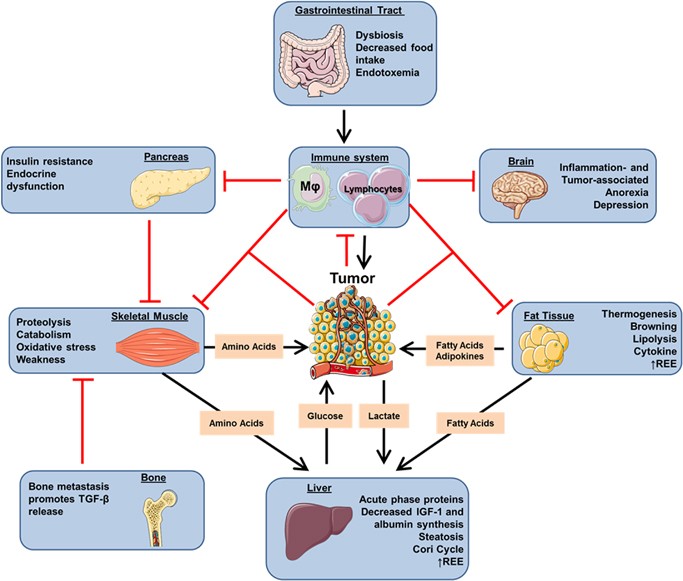
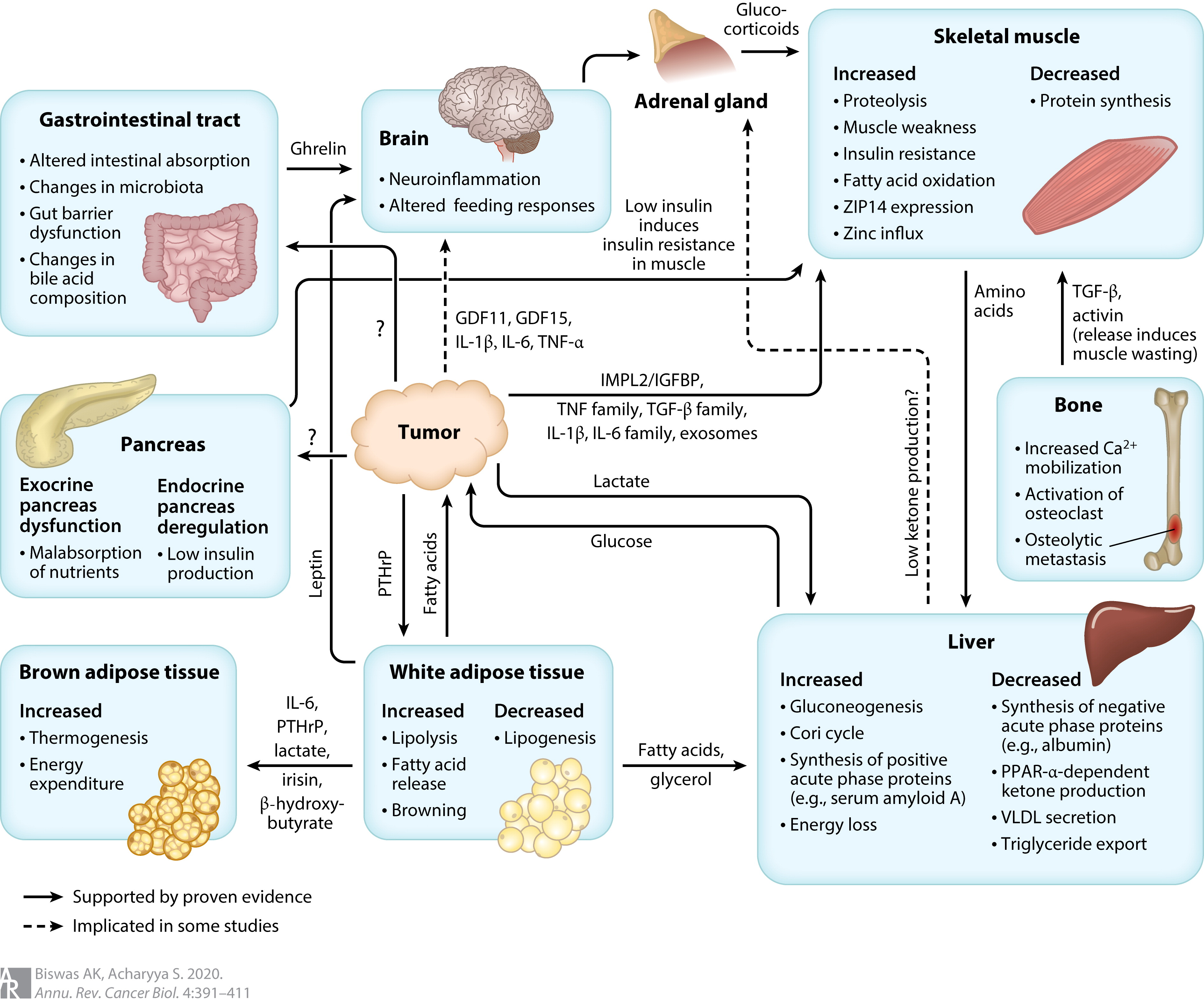

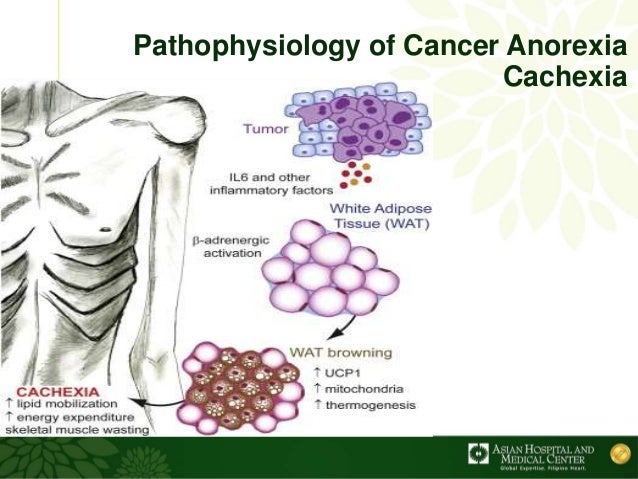

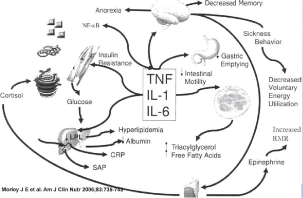




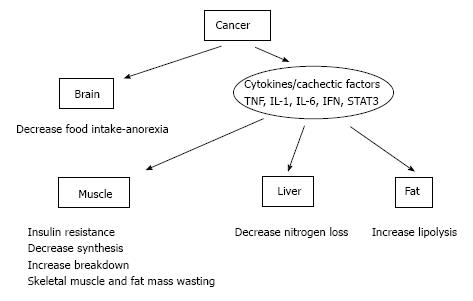

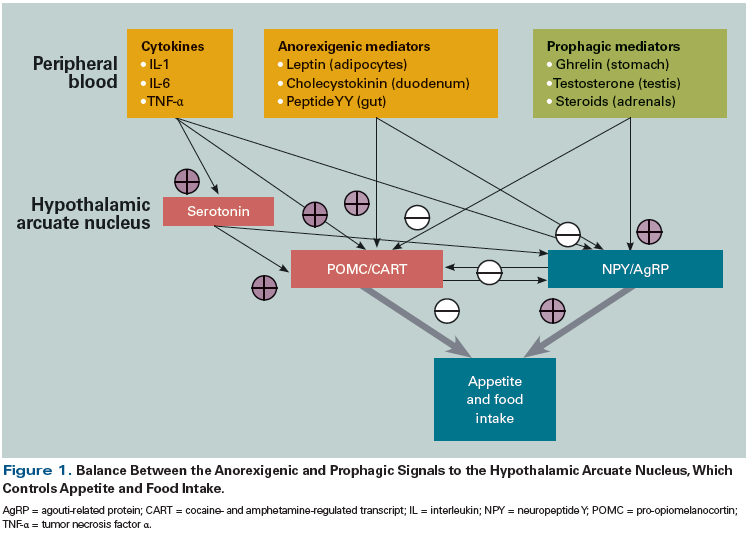




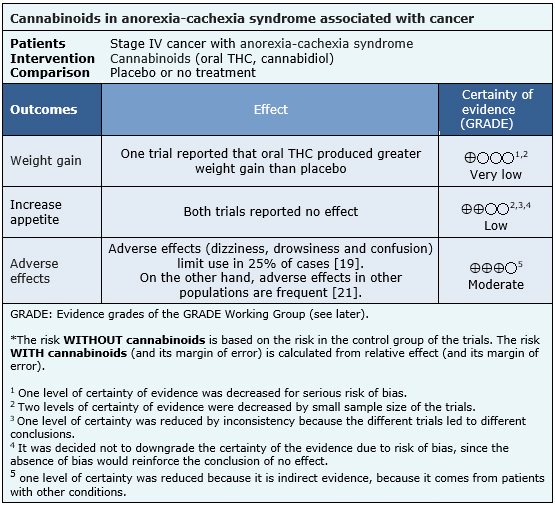

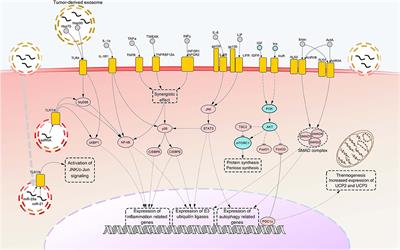


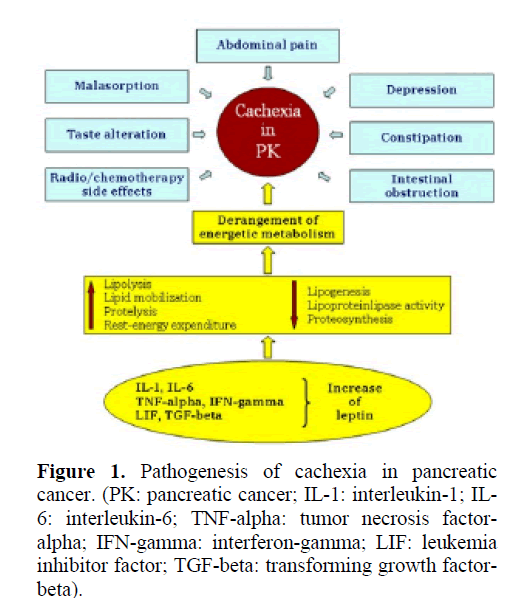
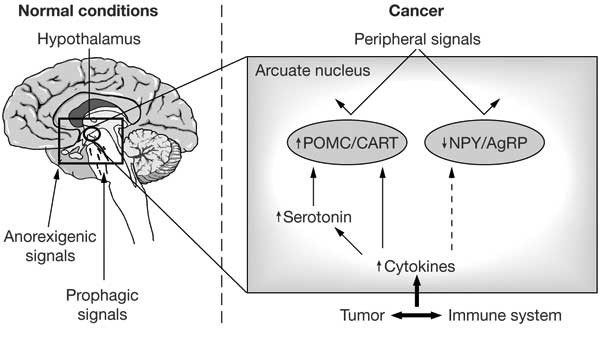
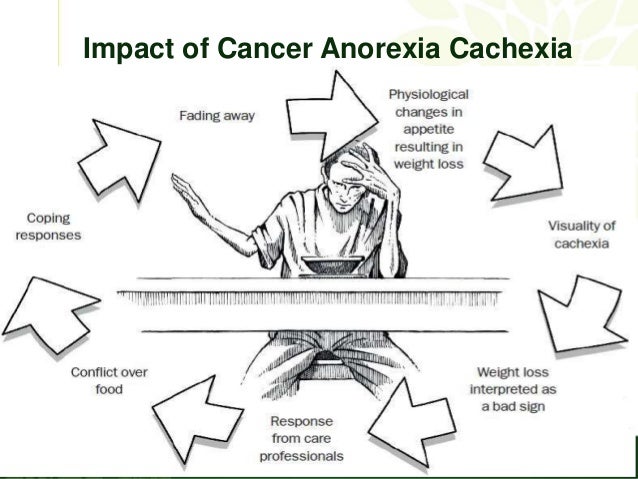

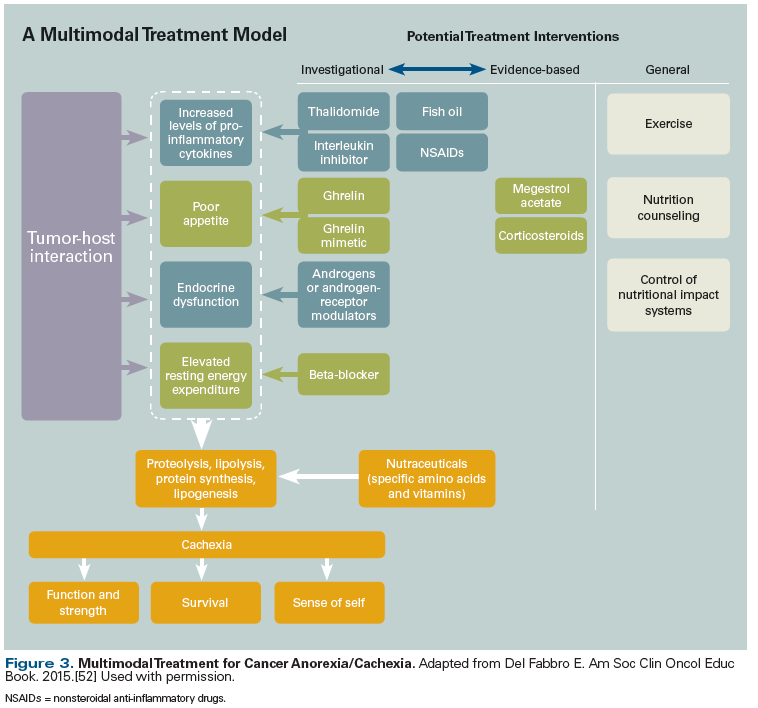
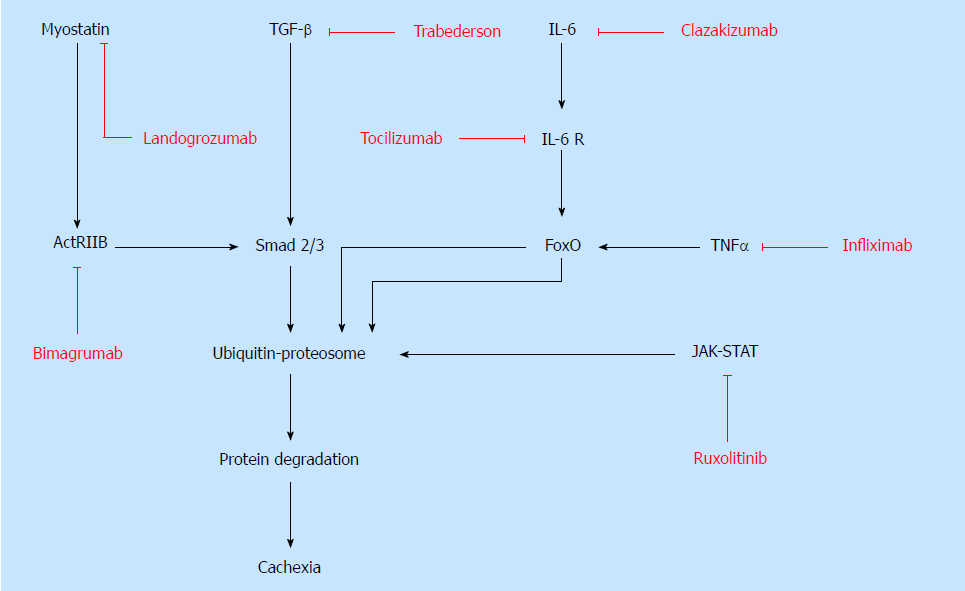

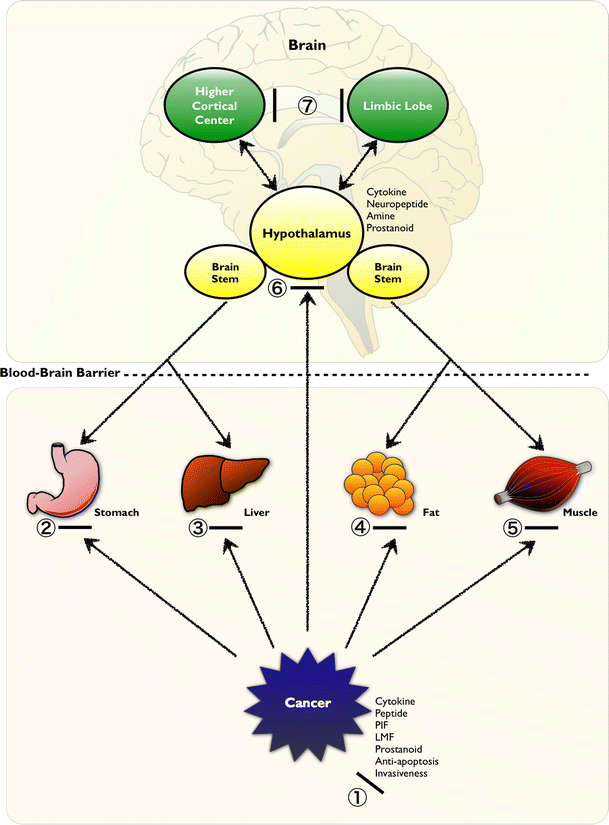
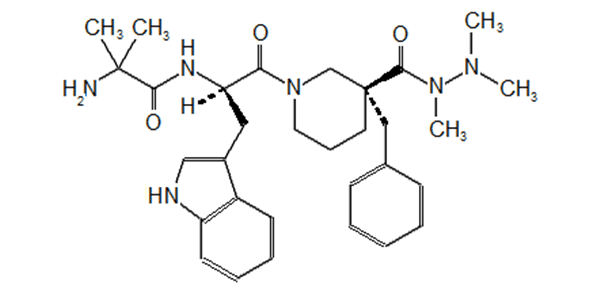




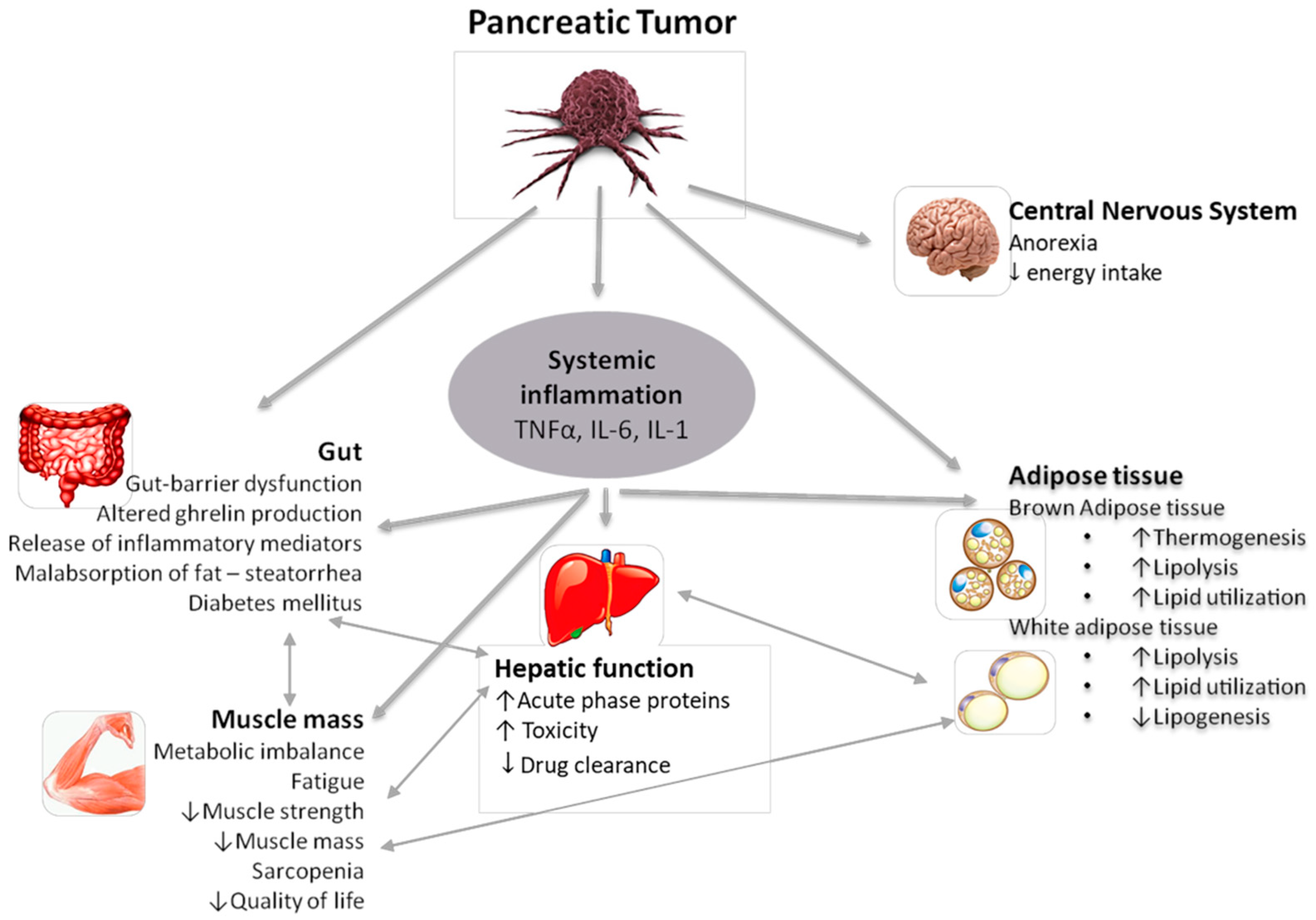




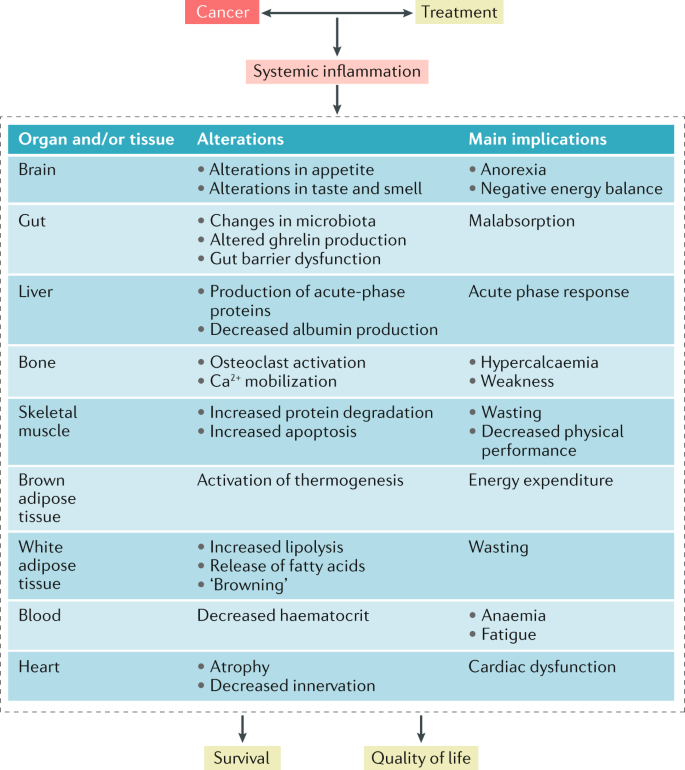
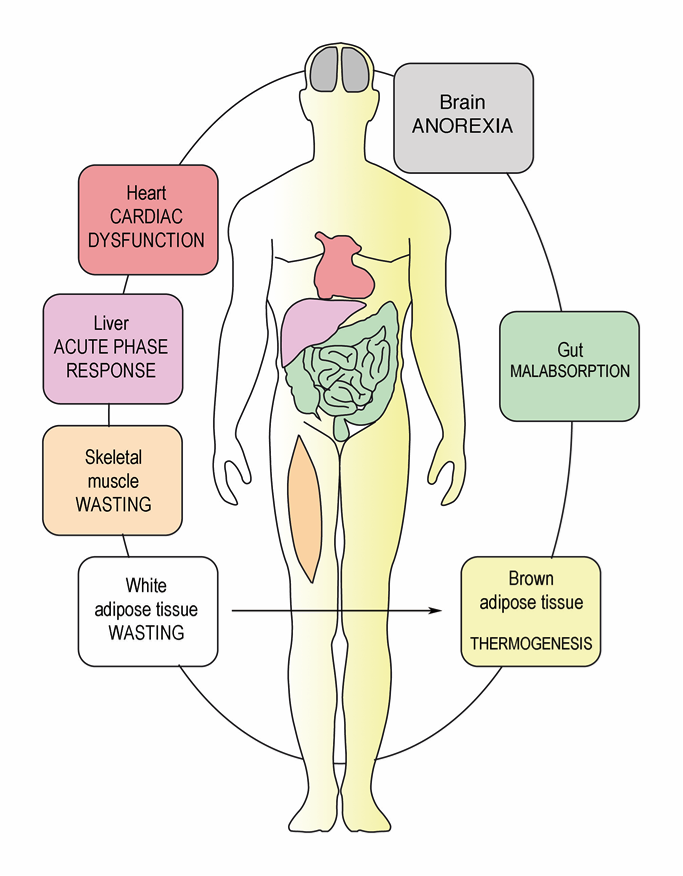
Post a Comment for "Cancer Anorexia-cachexia Syndrome"